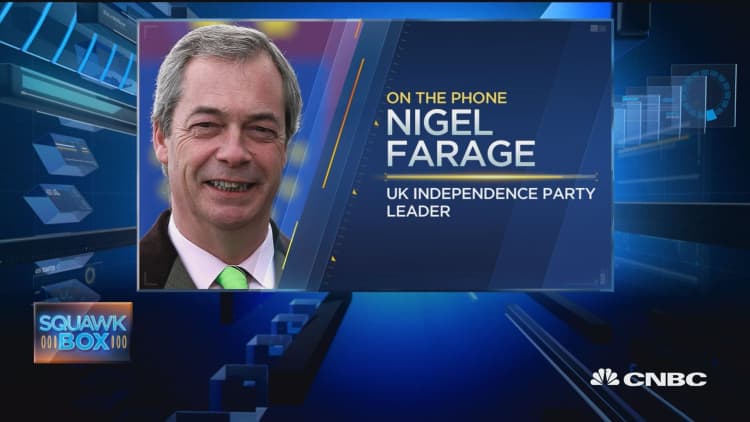As 2016 draws to a close, the year will end very differently to how it began, with Donald Trump set to take the White House, and the U.K. on the precipice of leaving the European Union.
So how should society define this year? According to Oxford Dictionaries, one simple phrase sums up 2016: "post-truth".
Announced on Wednesday by Oxford Dictionaries as its international "Word of the Year", "post-truth" is defined as an adjective "relating to or denoting circumstances in which objective facts are less influential in shaping public opinion than appeals to emotion and personal belief".
The past 12 months have been filled with events that have influenced the decision, with the U.K. and the U.S.'s votes alone leaving the world rocked by the outcomes. As a result, the use of the "post-truth" expression increased some 2,000 percent in 2016, compared with the previous year, the publisher revealed.
Following the announcement, Casper Grathwohl, the president of Oxford Dictionaries, said it wasn't surprising that "post-truth" was selected to define 2016, considering it was a year "dominated by highly-charged political and social discourse".
"Fuelled by the rise of social media as a news source and a growing distrust of facts offered up by the establishment, post-truth as a concept has been finding its linguistic footing for some time." Grathwohl said in a statement.
"We first saw the frequency really spike this year in June with buzz over the Brexit vote and again in July when Donald Trump secured the Republican presidential nomination."

The term has been frequently linked with the phrase "post-truth politics" as of late, however the word itself appears to date back to an essay about the Iran-Contra scandal and the Persian Gulf War, written in 1992 by late playwright Steve Tesich.
"Given that usage of the term hasn't shown any signs of slowing down, I wouldn't be surprised if post-truth becomes one of the defining words of our time," Grathwohl added.
Oxford Dictionaries reviews and debates a selection of terms for "Word of the Year" on an annual basis, with the team hoping to discover an expression that "captures the ethos, mood or preoccupations" of that particular year.
Previous winners include "selfie" for 2013, "vape" for 2014 and last year's was announced as not a word, but rather the "face with tears of joy" emoji.
When it came to 2016, "post-truth" had to compete with a slew of other expressions from the technological, cultural and social spheres. However, it seemed politics dominated this year's shortlist, with "alt-right", "Brexiteer", "glass cliff", and "woke" all being nominated.


